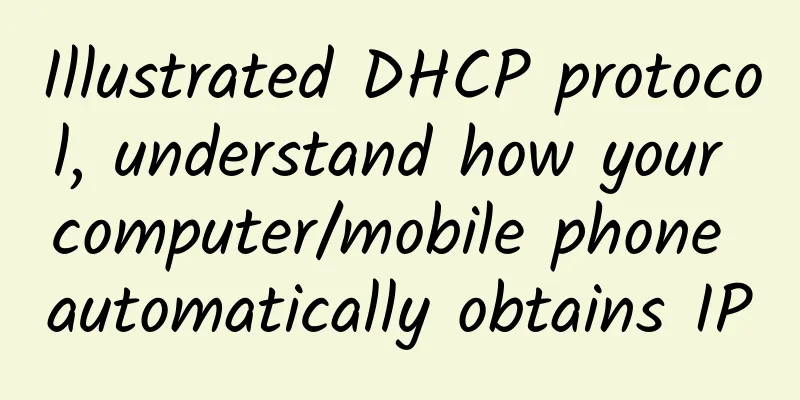How to protect remote workers from cyber attacks?

|
During the coronavirus outbreak around the world, many companies' employees have been working remotely from home, and the remote work ecosystem has also witnessed an exponential growth in cyberattacks. According to a survey by a research agency, 71% of security professionals said they have noticed an increase in security vulnerabilities and threats since the outbreak. But how does this paradigm shift in traditional business operations and work environments increase the risk of security incidents? Cybercriminals are exploiting the new defenses of businesses that are scrambling to get their employees working remotely as quickly as possible. This has resulted in weak security systems that are vulnerable to attack and breach by cyber attackers who work to find holes in the overall security systems of businesses of all sizes. In addition to this, the current situation and uncertainty in the aftermath of the outbreak suggests that the remote work model is here to stay. As employees work remotely from home, companies need to do everything they can to ensure confidential information is secure. Here are some measures that can help companies deal with cyber attacks in a remote work environment. (1) Use equipment provided and configured by the enterpriseEmployees’ work devices, including laptops, smartphones and tablets, need to always be equipped with an extra layer of security and securely configured by the company’s IT department. IT professionals also need to ensure that each device is updated and well protected against the latest security threats that could lead to data theft. On the other hand, employees who use their own devices are more vulnerable to various cybersecurity threats due to the lack of basic security and defense measures. In addition, security vulnerabilities may also occur if personal devices are connected to public Wi-Fi networks. Therefore, it is critical for companies to ensure that employees working remotely must use company-provided devices. (2) Control accessOne of the major mistakes that many people notice is providing permissions to a system, application, or resource to everyone in the organization. Access and user management helps organizations define specific permissions and access to resources based on specific parameters. For example, a business may provide the marketing department manager with access to monthly marketing reports, but need to restrict access to other employees on the same network. Since the overall security of the network depends on the company's employees, steps must be taken to ensure that employees report any security issues that arise as soon as possible, regardless of the circumstances. (3) Provide network security training to employeesIn an age where cybercriminals are finding new ways to access sensitive corporate information, cybersecurity training is essential to increasing employee security awareness. While most employees are overconfident in their knowledge and alertness, many of them are not even aware of new security threats. Businesses must have clear policies regarding the use of office equipment and types of networks, and must conduct frequent cybersecurity awareness training to ensure that their employees are familiar with the types of cyber fraud and how to recognize and report these frauds. Companies must also conduct cybersecurity testing on a monthly or quarterly basis to assess the security knowledge of their employees. After analyzing the performance, companies should work on security efforts in areas that require attention. (4) Avoid sharing sensitive information via emailAnother common mistake that can lead to a security breach is sharing sensitive information, including login credentials, via email. Since emails are not encrypted and are transmitted as text, hackers can potentially find holes in your network and gain access to confidential information. Businesses need to gradually develop policies to restrict the use of chat messages, emails and even instant messaging platforms to avoid sharing confidential details that may affect the security of corporate data. (5) View data logIt is critical for enterprises to fully review data storage as well as storage hardware and methods to enhance security. The era of remote work from home places great need for precise management of data logs and access lists, records, and correct dates and times. This can enhance overall defense against unauthorized access through timely reporting to minimize losses. Consistent monitoring of these data access logs can be very beneficial for an enterprise to minimize security risks. (6) Avoid public Wi-Fi networksMany people like to use free public Wi-Fi networks to access their email or log into their company's official accounts, however, these public networks are not as secure as people think. Security experts advise against using public Wi-Fi connections to conduct online banking, share confidential business details, or even log into a company's web portal. If your network connection is not secure, cyber criminals may try different ways to access your information, which is perhaps why you should avoid using public networks to connect to the global internet. (7) Analyze third-party supplier risksIn the wake of the pandemic, many businesses are more dependent than ever on third-party software vendors. This is because the total development cost of developing and maintaining any software in-house may exceed the total budget allocated for this particular software. For example, a business may purchase and install tracking software on an employee’s system to track overall activities during work hours. If the software is not from a trusted vendor, the software may further increase the risk of malware attacks. Experts advise that companies need to carefully choose third-party software vendors, as many dubious software programs can install malware on employees' systems, further compromising security. in conclusionThe work-from-home ecosystem is more vulnerable to cyberattacks because attackers have more targets to attack. By considering the above security measures, cyberattacks targeting remote work environments can be effectively prevented. In addition, educating employees to prevent human errors may greatly reduce the security vulnerabilities of enterprises providing remote work devices to employees. |
<<: Are driverless cars, smart homes, telemedicine, etc. all dependent on 5G?
>>: 5G is coming, opening up unlimited business opportunities
Recommend
Huawei has entered Jiangmen to help build a smart city and big data industry chain
Recently, Jiangmen Municipal People's Governm...
Is it wrong to choose WiFi as the route to attack the Internet of Vehicles? It doesn’t matter whether the cat is black or white, as long as it catches the mouse!
From the first three-wheeled vehicle developed by...
F5: Building an architecture with full data path protection to protect enterprise applications
As global digital transformation continues to acc...
Facing the high pressure of price war, how will Yunfan Accelerator choose to break through?
[51CTO.com original article] What kind of CDN ven...
[Black Friday] spinservers: $49/month - E3-1280v5, 32G memory, 1TB NVme, 10Gbps bandwidth, San Jose/Dallas data center
Spinservers' Black Friday event has also begu...
Which parameters need to be tuned to support millions of long connections?
File descriptor limits System-level limit: The op...
[Double Holiday] spinservers: 1Gbps unlimited traffic server from $59/month - E3-1280v5, 32G memory, 1TB NVme, Dallas/San Jose data center
spinservers has released a promotion for the upco...
80VPS: Special VPS hosting starting at 199 yuan per year, 50% off for regular VPS, optional CN2 lines in the United States/Hong Kong/Japan/Korea, etc.
80VPS is an early established Chinese hosting com...
How does 5G open the door to huge technological advancement for manufacturing companies?
The rollout of 5G is expected to usher in the Fou...
Where does the power of high-performance 5G core network come from?
The core network is the brain of the entire commu...
Is 5G coming too fast? No, it’s just the communication technology that is being upgraded.
In this era, people’s understanding of happiness ...
GSMA: 5G SA and 5G-A are booming, and operators will continue to increase investment
According to a research report released by the Gl...
World Cup employees are distracted and use enterprise-level routing to control
The World Cup has entered the semi-finals, with F...
The virtual world's "express delivery system" is upgraded again, what is IPv6+?
This article is reproduced from Leiphone.com. If ...
Huawei's first Intelligent Computing Conference was held in Beijing. Huawei released a new intelligent computing strategy to meet the 100 billion market
[51CTO.com original article] On December 21, 2018...









